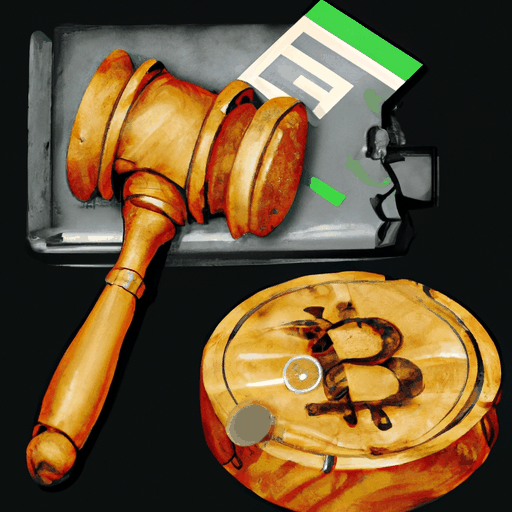
Scam Exploits Dormant Bitcoin Wallets with False Legal Notices
By: Eva Baxter
Recent reports from BitMEX Research have highlighted a sophisticated scam aiming at Bitcoin holders with wallets created over a decade ago. This scam, primarily affecting dormant Bitcoin addresses, engages in injecting falsified transactions and misleading messages via OP_Return outputs. These arbitrary data fields within Bitcoin transactions are being manipulated to deceive unsuspecting victims. A notorious case involves the '1Feex' wallet, which accumulates approximately 80,000 BTC originally believed to be stolen from the infamous Mt. Gox breach.
The scammers have crafted fraudulent legal notices purporting to be from the defunct Wall Street institution, Salomon Brothers. This fake notice claims the wallet is considered "lost or abandoned" and provocatively asks the alleged owners to demonstrate their claims by either signing an on-chain message with the private key or by disclosing personal documents via an online form. This manipulative message pressures users, stating that if no response is recorded by October 5th, the wallet will be deemed abandoned in legal terms. This guise seems to weigh heavily on social engineering strategies to manipulate sensitive information from victims.
BitMEX has vigorously warned the community, pointing out the fictitious nature of the connections to Salomon Brothers, noting no authentic ties between the website and the actual individuals listed as prior affiliates of the firm. The scam echoes previous tactics linked to notorieties like Calvin Ayre, who previously facilitated legal pursuits concerning the '1Feex' address. Community advisory suggests that legitimate wallet holders should merely transfer a minimal amount of BTC to signify wallet activity rather than exposing themselves to potential theft.
This latest innovation in crypto fraud underscores the escalating scale and sophistication of crypto-related scams. Recent statistics reveal that in the first half of 2025 alone, cybercriminals executed thefts exceeding $2.1 billion over 75 incidents, highlighting a 10% uptick compared to the previous year. The incidents underscore the need for heightened caution and security within the cryptocurrency domain, especially in light of such elaborate deceptive practices which are also indicative of broader mechanisms targeting sensitive data.



